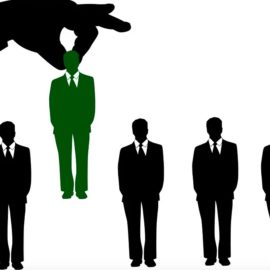

This article is an excerpt from the Shortform book guide to "Leaders Eat Last" by Simon Sinek. Shortform has the world's best summaries and analyses of books you should be reading.
Like this article? Sign up for a free trial here .
Are you looking for Leaders Eat Last quotes by Simon Sinek? What are some of the most noteworthy passages worth revisiting?
In Leaders Eat Last, Simon Sinek teaches leaders how to unite their teams through empathy. He argues that empathy is the reason why “some teams pull together and others don’t.” Leading with empathy by prioritizing the needs of your subordinates over the company’s profits.
Below are a couple of quotes from Leaders Eat Last by Simon Sinek.
Leaders Eat Last: Why Some Teams Pull Together and Others Don’t
In Leaders Eat Last, author and inspirational speaker Simon Sinek argues that a leader’s primary responsibility is to prioritize her subordinates’ needs above her own. In business, this usually manifests as a manager prioritizing her employees’ personal needs above immediate profit. Ultimately, this helps the company—and its leader—to be more successful.
The following Leaders Eat Last quotes highlight some of the key ideas.
“And when a leader embraces their responsibility to care for people instead of caring for numbers, then people will follow, solve problems and see to it that that leader’s vision comes to life the right way, a stable way and not the expedient way.”
According to Sinek, when leaders see their subordinates as people rather than assets that produce profits, employees feel safe because they can trust you to support them and be invested in their success as well as your own. Sinek implies that supporting your subordinates means paying attention to them so you can monitor and fulfill their needs.
In a supportive environment, your subordinates are comfortable collaborating because they don’t have to compete for your support, Sinek says. This is not the case in unsupportive environments, where support and caring attention are given so rarely (and usually only to those who earn the most profit for the company) that coworkers see each other as rivals for it.
“Stress and anxiety at work have less to do with the work we do and more to do with weak management and leadership.”
If you don’t prioritize your subordinates’ needs and see them as assets to maximize profits, you become a threat to them. This kind of climate is a breeding ground for stress and anxiety. Instead of focusing on bringing value, employees focus on protecting themselves and their careers rather than collaborating or finding innovative ways to help the company as a whole. This leaves the company divided and stagnant, unable to effectively counter external threats.

———End of Preview———
Like what you just read? Read the rest of the world's best book summary and analysis of Simon Sinek's "Leaders Eat Last" at Shortform .
Here's what you'll find in our full Leaders Eat Last summary :
- Why a leader must prioritize her subordinates’ needs above her own
- How empathy and support can be strong managerial tools
- Why you must see your customers, suppliers, and employees as people






